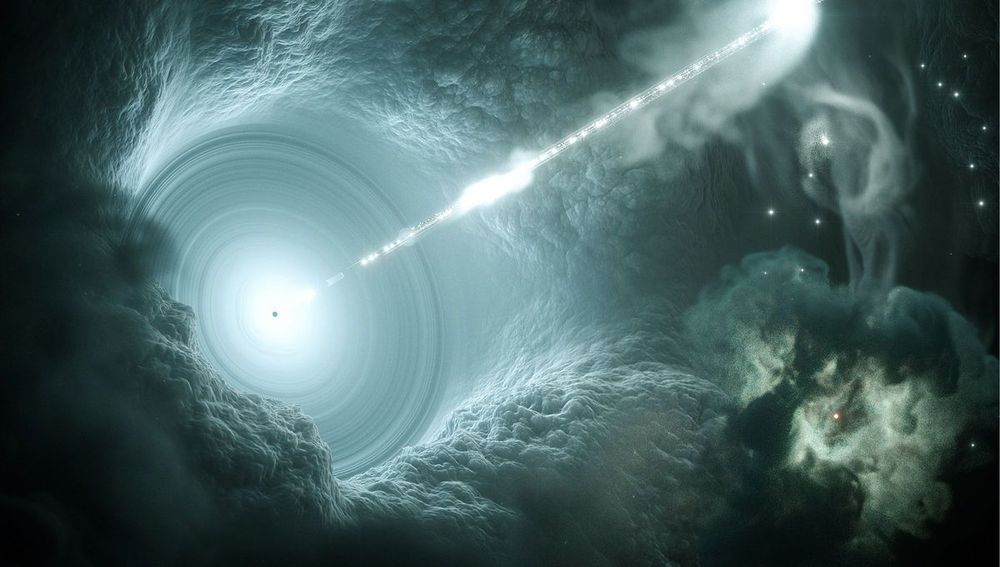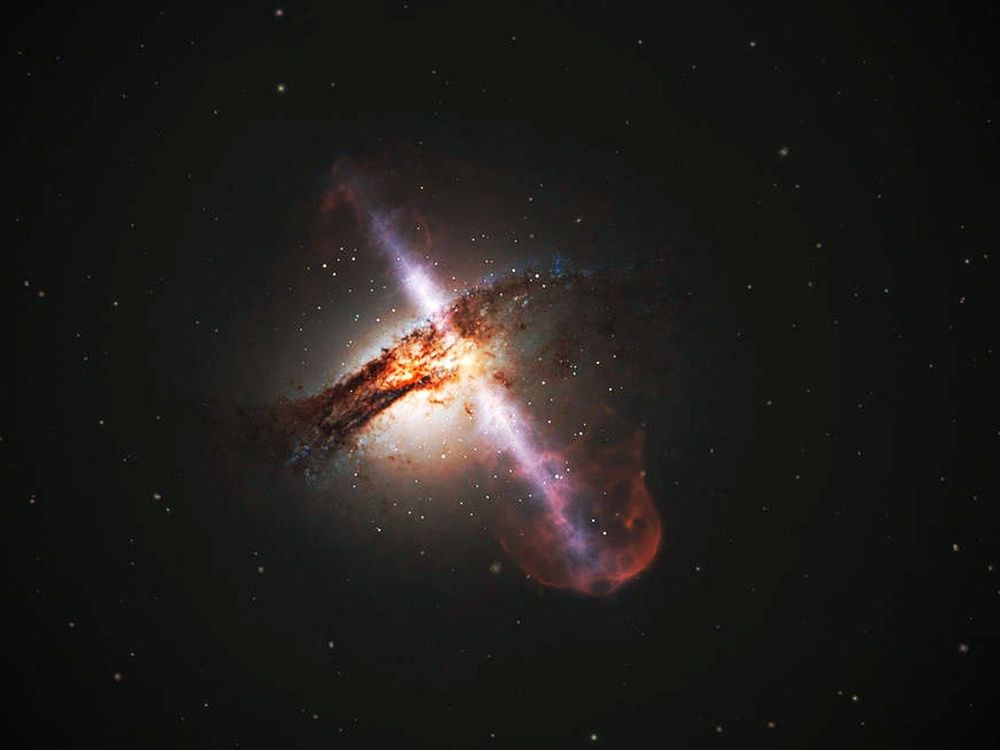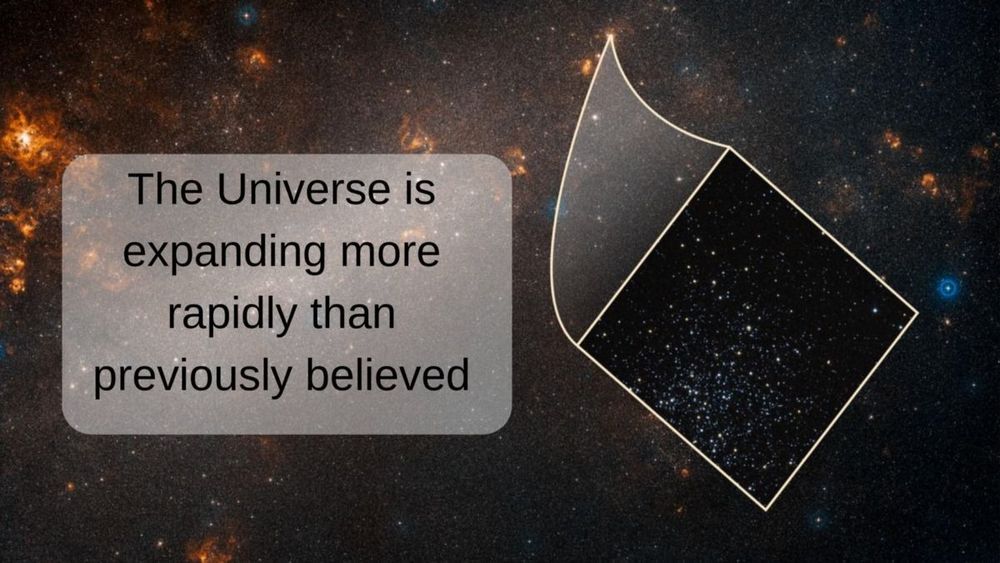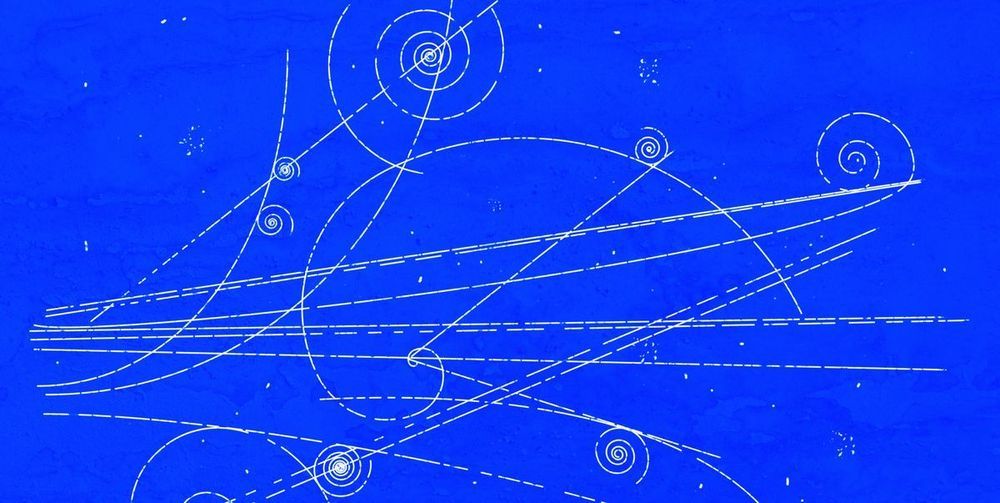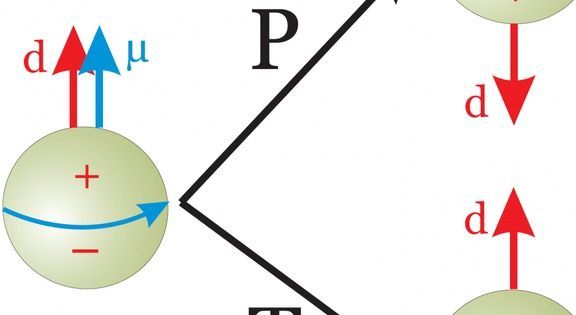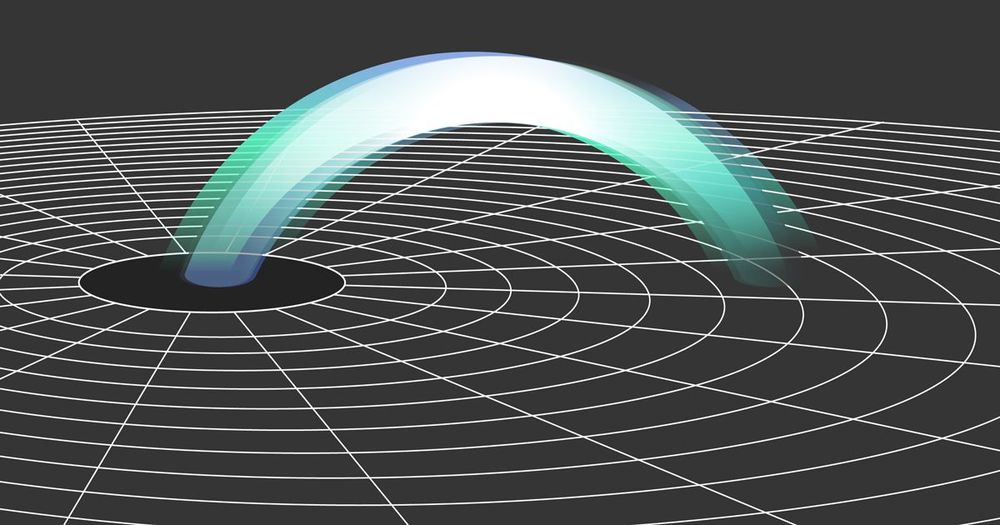Supermassive black holes are true monsters of the Universe. From millions to even billions of times the mass of the Sun, there’s one in the very center of every big galaxy in the cosmos, and in fact each galaxy itself formed and grew along with its black hole; they affect each other profoundly. As matter falls onto the black hole it falls into an accretion disk, heats up, and emits huge amounts of energy and can also blow a fierce wind of material back into the galaxy (we call such galaxies with actively feeding supermassive black holes active galaxies). This wind can push away gas and dust that would otherwise fall onto the black hole, regulating its growth.
Under some conditions this wind can also compress the gas in the galaxy, which can increase the number of stars forming in the galaxy. But too much wind and the gas is blown right out of the galaxy. Even at some levels in between, it can heat the gas up enough that star formation is much harder. It’s like a pressure valve in the galaxy.
This is how it usually works, at least. Astronomers have found a compact group of galaxies clustered around an active galaxy, and that central galaxy’s black hole is so powerful it’s blowing a wind that’s causing star formation in the galaxies around it!
